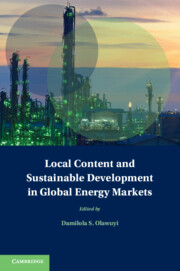This article examines the relationships between representations and operations of sovereignty in natural resource governance. We advance a ‘political ecology of sovereignty’, examining the participation of non-state actors in resource governance processes. We particularly argue that processes of integrating subaltern populations through mapping local ecological knowledge can modify effective governance practices while nonetheless reproducing the legibility of state sovereign authority and its territorial boundaries. Exploring the Enbridge Northern Gateway pipeline in Canada, we suggest that state jurisdictional authority is secured through incorporating indigenous interests as a delimited geography of tradition. Examining the Hatgyi hydroelectric development along the Thai–Burmese border, we argue that the territorial boundaries of those nation-states are rearticulated through the governance of this transboundary development. Through these cases, we demonstrate how the insertion of local knowledge works not only to reconfigure effective governance processes but also to reinforce the effect of state sovereignty in new ways.
